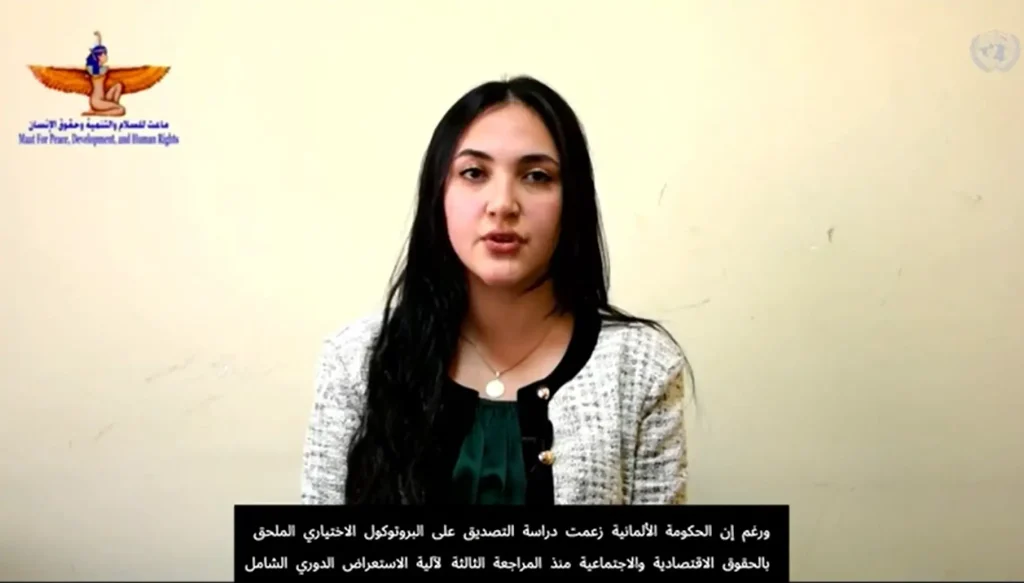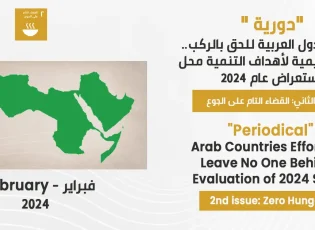The absence of basic health services threatens the lives of the citizens of the New Valley
Maat appeals to the Minister of Health to find urgent solutions to provide health services to citizens
In light of the results of the first universal periodic review convoy conducted by Maat Foundation for Peace, Development and Human Rights for the New Valley Governorate last May, the Foundation monitored the suffering of the citizens of the New Valley from a problem related to the lack of access to health services and their low quality, which is evident in the lack of medical specialties and equipment The necessary hospitals in the governorate, although there are health units in most remote villages, they are devoid of both doctors and medical devices.
According to the information available to the Maat Foundation, and based on discussions with a large number of citizens and officials in the governorate, it was found that the governorate, which includes 7 hospitals and 61 health units at the level of the governorate's centers and villages, suffers from a shortage of medical specialties and health personnel, as shown below:
1. The villages of Darb al-Arbaeen in the Center of Paris suffer from the presence of health units without doctors, as most of the people bear heavy expenses to transport patients to the Central Hospital of Paris, which in turn suffers from the lack of medical equipment and staff, and accordingly, patients are transferred to the Kharga General Hospital, which transfers Patients to Assiut hospitals. As it is customary for health units to be built and closed immediately after construction and equipment, in addition to relying on nurses or assigning more than one medical unit to one doctor who goes to it once a week.
2. Balat Central Hospital in Dakhla suffers from the absence of medical devices, knowing that one general practitioner works in the hospital and transfers patients to Dakhla Central Hospital, which is 40 kilometers from the Balat center, and due to the absence of medical specialties, Dakhla Hospital refers patients to Assiut Hospital. Note that the Balat Center has a central hospital and 8 health units in villages, but without doctors.
3. Farafra Center suffers from the central hospital’s lack of the simplest medical facilities, which are blood pressure and blood glucose meters.
4. Kharga General Hospital lacks human and material needs and medical devices, including medical specialties, devices and equipment, technical labor, support services, nursing staff and furniture, which impedes the provision of health services to citizens and pushes them to resort to Assiut Hospital, which represents an additional burden on patients and threatens the lives of some of the cases Critical or emergency.
5. The health units and hospitals in the villages, centers and cities of the governorate suffer from a severe shortage of medical personnel, as the deficit of doctors in the governorate reaches about 400 doctors, in addition to the lack of commitment to work inside the hospital to be preoccupied with outpatient clinics and the reluctance of new doctors to come to the governorate due to the nature of its desert climate and its distance from the Nile Valley governorates .
6. Farafra Central Hospital suffers from the absence of intensive care departments, radiology and a wide range of specialties. Where the number of hospital doctors does not exceed 8 doctors for all specialties except for the dental department, which includes 10 doctors, and the hospital suffers from old and worn out devices, and the hospital also operates with a 15% percentage of its administrative and medical strength and suffers from the absence of technical services. In addition to these problems, the hospital is exposed to serious neglect represented by the arrival of sewage water to the hospital kitchen.
7. Hospitals suffer from a lack of vaccines and vaccinations against scorpion and snake venoms that are widespread due to the nature of the desert governorate, which has led to an increase in deaths, especially among children in remote villages.
8. The scarcity of public transportation, lack of paving of roads and the vast distances between centers, compound the suffering of patients, especially those who suffer from chronic diseases or emergency situations.
This contradicts a number of recommendations accepted by the Egyptian state during the second session of the UPR in March 2015, the most important of which were:
Recommendation No. 166-78, submitted by Turkmenistan, which provides for "strengthening its efforts to support women's social rights, such as the right to education and health."
Recommendation No. 166-84, submitted by Brunei Darussalam, which states “to continue its efforts to ensure women's empowerment in the economic, health and social fields, including women's inclusion, as well as to establish women's health centers in order to ensure the promotion and protection of women's rights in the country” .
Recommendation No. 166-267, submitted by Iran, which states "to intensify its efforts to realize economic, social and cultural rights, including the right to health."
Recommendation No. 166-274 from Uzbekistan, which states “Continue efforts to ensure universal access to quality education and health care”.
In light of this, the Maat Foundation appeals to the Prime Minister and the Minister of Health to quickly take the necessary measures to provide health care to the citizens of the governorate by filling the deficit in the number of doctors and technicians present in the governorate, to provide medical equipment and equipment necessary for the work of hospitals, to run specialized medical convoys periodically to fill the deficit and meet Citizens ’needs for health services, providing consultants on a regular basis to visit the governorate, in addition to discussing the possibility of establishing a medical college in the governorate.











